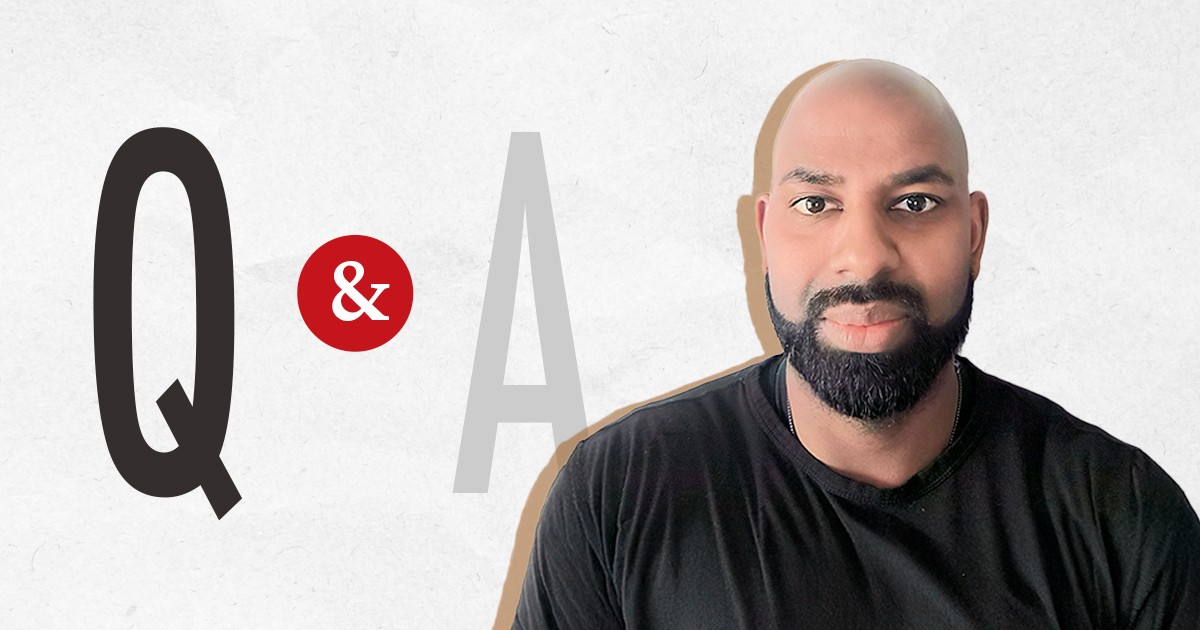As Father’s Day approaches, I am struck once again by the selection of cards available. They tend to fall into three themes: sports, tools and drinking beer. None of these things apply to me. I enjoy the occasional football or baseball game to be sociable, but you couldn’t pay me to watch cars drive in a circle for hours. As a handyman, I can be downright dangerous, having given myself an electric shock on more than one occasion. And, as a senior soldier in The Salvation Army, I don’t drink alcohol.
I know the kind of guy these cards are meant for, and many are well-rounded people, but the cards on display are two-dimensional. Not only because they’re printed on paper but also in the way they illustrate what it means to be a man.
There is a difference between manhood and toxic masculinity—the societal pressure and obligations imposed on men to conform to certain stereotypes. Toxic masculinity is based on the belief that men and women fall into two completely separate categories; masculinity and femininity are two boxes that don’t overlap. Traditionally, to be masculine is to be stoic, self-sufficient, assertive and aggressive. Women, on the other hand, are supposed to be dainty, emotional, community-minded, demure and peaceful. With these stereotypes come certain expectations.
Men are expected to be big and strong. Men don’t cry or show their emotions. If a man doesn’t have a job, he is useless. If a man isn’t a leader, he is worthless. A man should be glad to fight for himself, his family or his country. These are messages that, either explicitly or implicitly, every boy is taught, and they take root in every man. There seems to be a notion that today’s liberal culture is tearing society apart and villainizing traditional values of masculinity. But the opposite is true. The only thing people want to destroy are ideas that harm men and society. We need to combat the thought that men should repress or not talk about their feelings, because it leads to isolation and depression. We need to understand the dignity and worth of individuals, regardless of where they work or if they are in charge. We need to teach that violence is never an appropriate answer. This doesn’t turn men into women—it recognizes the full humanity in each person.
The fact that everyone has masculine and feminine characteristics is not a design flaw, but rather an extension of how we were made in the image of God. God, through Christ, who was fully man and fully God, demonstrated the character we should strive to emulate. He was a man who was not afraid to be strong and loving. He was nurturing, but not afraid to flip over some tables when the situation called for it. He led, not by shouting and screaming, but by sitting and teaching. As he hung on the cross, Christ entrusted his mother to John, forging a connection between the two of them, born from their love for him, to ensure the emotional support they would both need. God the Father even describes himself using feminine imagery throughout the Old Testament. Isaiah 66:13 says, “As a mother comforts her child, so will I comfort you; and you will be comforted over Jerusalem.”
I believe that the traditional and rigid rules and roles prescribed by toxic masculinity are not of God and, in fact, come straight from the devil. No man fits perfectly into the box of what it means to be masculine, just as no woman fits perfectly into femininity. And forcing us to try and fit into these moulds requires chipping away at important aspects of ourselves. As well-rounded human beings, we are all meant to have masculine and feminine parts. Being loving and nurturing does not mean acting like a woman—it means acting like God. So if you, like me, don’t fit the traditional view of what makes a man, you should celebrate that. And maybe next year there will be a better selection of cards to celebrate everything that makes us human.
Darryn Oldford is a senior soldier in Toronto.
Photo: Vonschonertagen/ iStock via Getty Images Plus
I know the kind of guy these cards are meant for, and many are well-rounded people, but the cards on display are two-dimensional. Not only because they’re printed on paper but also in the way they illustrate what it means to be a man.
There is a difference between manhood and toxic masculinity—the societal pressure and obligations imposed on men to conform to certain stereotypes. Toxic masculinity is based on the belief that men and women fall into two completely separate categories; masculinity and femininity are two boxes that don’t overlap. Traditionally, to be masculine is to be stoic, self-sufficient, assertive and aggressive. Women, on the other hand, are supposed to be dainty, emotional, community-minded, demure and peaceful. With these stereotypes come certain expectations.
Men are expected to be big and strong. Men don’t cry or show their emotions. If a man doesn’t have a job, he is useless. If a man isn’t a leader, he is worthless. A man should be glad to fight for himself, his family or his country. These are messages that, either explicitly or implicitly, every boy is taught, and they take root in every man. There seems to be a notion that today’s liberal culture is tearing society apart and villainizing traditional values of masculinity. But the opposite is true. The only thing people want to destroy are ideas that harm men and society. We need to combat the thought that men should repress or not talk about their feelings, because it leads to isolation and depression. We need to understand the dignity and worth of individuals, regardless of where they work or if they are in charge. We need to teach that violence is never an appropriate answer. This doesn’t turn men into women—it recognizes the full humanity in each person.
The fact that everyone has masculine and feminine characteristics is not a design flaw, but rather an extension of how we were made in the image of God. God, through Christ, who was fully man and fully God, demonstrated the character we should strive to emulate. He was a man who was not afraid to be strong and loving. He was nurturing, but not afraid to flip over some tables when the situation called for it. He led, not by shouting and screaming, but by sitting and teaching. As he hung on the cross, Christ entrusted his mother to John, forging a connection between the two of them, born from their love for him, to ensure the emotional support they would both need. God the Father even describes himself using feminine imagery throughout the Old Testament. Isaiah 66:13 says, “As a mother comforts her child, so will I comfort you; and you will be comforted over Jerusalem.”
I believe that the traditional and rigid rules and roles prescribed by toxic masculinity are not of God and, in fact, come straight from the devil. No man fits perfectly into the box of what it means to be masculine, just as no woman fits perfectly into femininity. And forcing us to try and fit into these moulds requires chipping away at important aspects of ourselves. As well-rounded human beings, we are all meant to have masculine and feminine parts. Being loving and nurturing does not mean acting like a woman—it means acting like God. So if you, like me, don’t fit the traditional view of what makes a man, you should celebrate that. And maybe next year there will be a better selection of cards to celebrate everything that makes us human.
Darryn Oldford is a senior soldier in Toronto.
Photo: Vonschonertagen/ iStock via Getty Images Plus










Comment
On Sunday, June 21, 2020, James Read said:
Leave a Comment